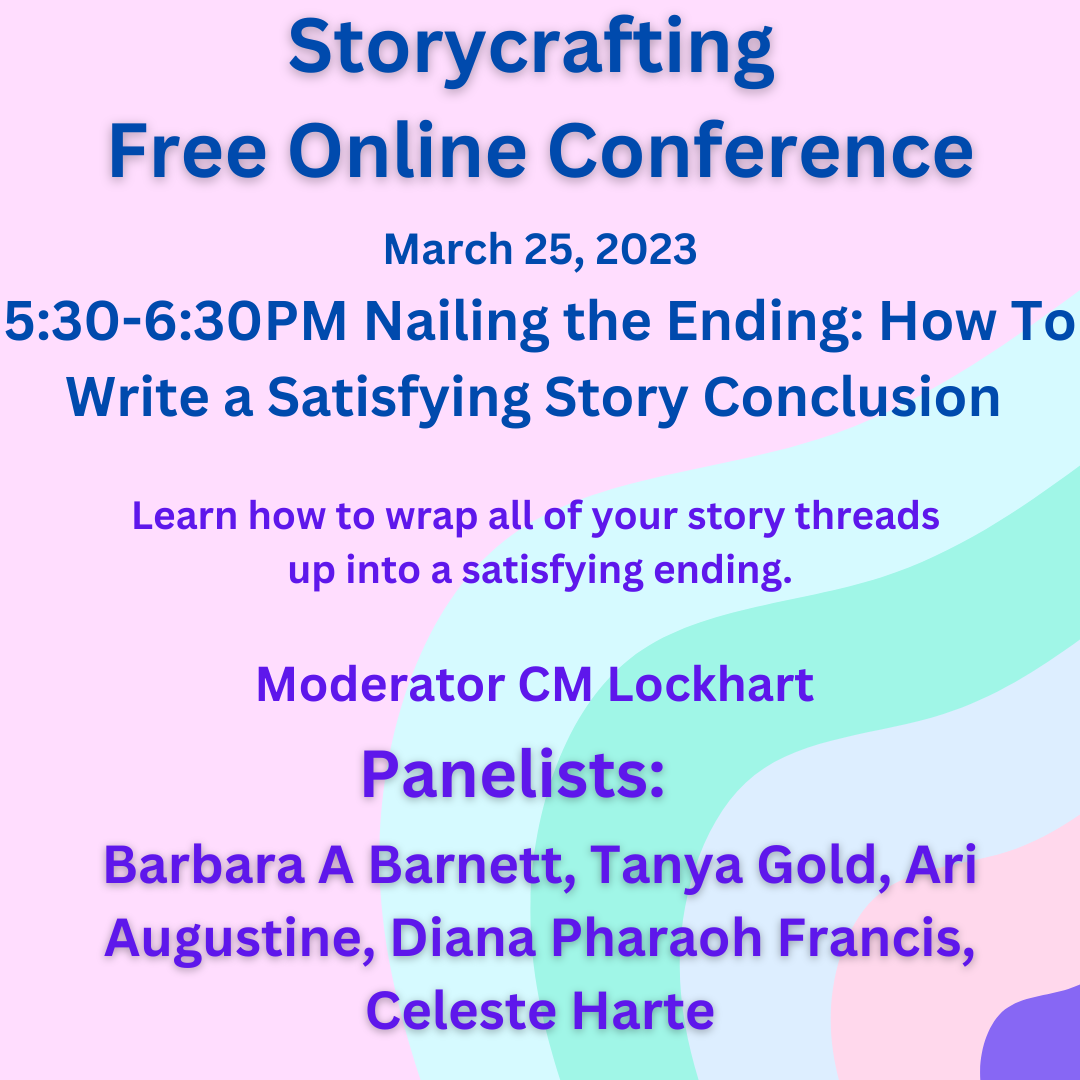
Free Conference On Writing!
I’m taking part in a free conference on writing hosted by Weeknight Writers. It’s titled Storycrafting Sessions: Drafting. It’s a day long and I’m on the last panel, which is about how to craft a satisfying ending. While we all know this is of paramount importance, we sometimes don’t remember to think about why. Writing is all about the reader experience. They want a good story, and that means they want to be emotionally invested and desperate to find out what happens or how the characters get out of this mess. They are racing through the reading with desperate uncertainty, ready to get to the end and see how it all plays out. They think they know the ending they want, and they might be right that that’s the best ending. But in the end, what they want is an emotionally and intellectually satisfying ending.
I never watched Game of Thrones, but I’ve heard a lot about how disappointing the ending was. All that investment that the audience made came to nothing. They felt cheated and angry and like they wasted their time. That they put up with having their emotions wrenched every which way because they knew it would be worth it, only to discover it wasn’t. You have got to stick the landing, in gymnastics terms. No matter how good you do during the event, if you don’t stick the landing, the result is disappointment. In the case of gymnastics, it’s sympathetic disappointment. You’re rooting for the athlete and it’s heartbreaking when they don’t stick the landing.
When it comes to readers, though, they do blame the athlete, or more specifically, they blame the writer. They are quite correct to do so. You have to make sure that you give that emotional catharsis you’ve been building up to. If you’ve gone to great depths of emotion in telling the story, you’ve got to go to great heights to compensate and satisfy. People want to see villains get karmic punishment. They want to see good people rewarded. They want to see suffering end and arrogance and meanness avenged.
And so in this conference panel (remember the conference is FREE to attend) me and my fellow writers will be discussing how to make that ending powerful.
I have two stories that I just adore. One is by Susan Glaspell and is called “A Jury of Her Peers” (also a one act play called Trifles). The other is an Edith Wharton short story titled “Roman Fever.” Both are relatively quiet novels with endings that just punch you in the gut. I remember the first time I read “Roman Fever.” The last paragraph required me to turn the page, so I had this moment that served as kind of a drum roll and then this cymbal crash as I read the last lines. It was POWERFUL. A lot of it had to do with suddenly reorganizing your understanding of everything based on that ending. “A Jury of Her Peers” is similar. The ending is perfect and you just end up sitting with it and wanting to read it all over because it’s both that good a story and that good an ending.
I like to think I stick my endings and I hope that you have a chance to come by and visit during the conference.
I’m curious. What stories/books have really nailed the endings for you? I’ll add one more. Tigana. I won’t discuss that ending because the book is that good, but it hits on all cylinders. Yowza.
XOXO
Di

